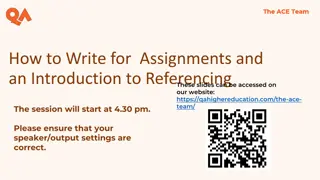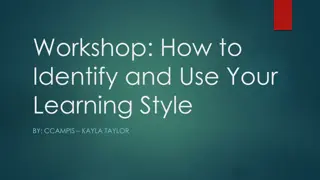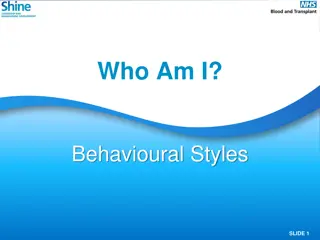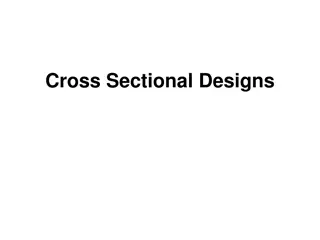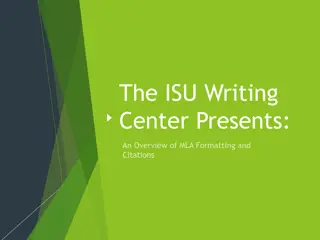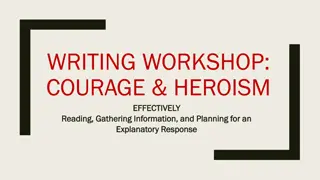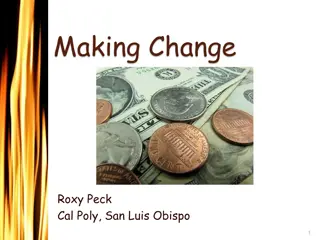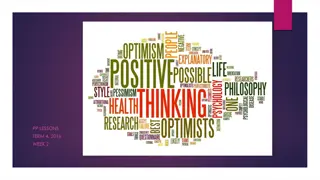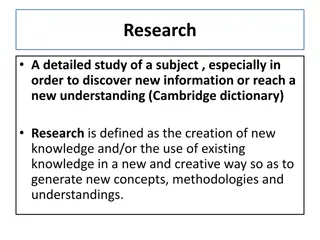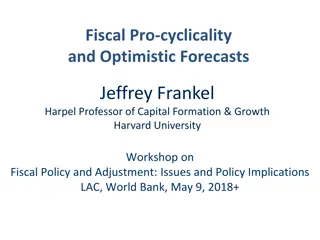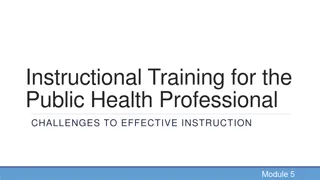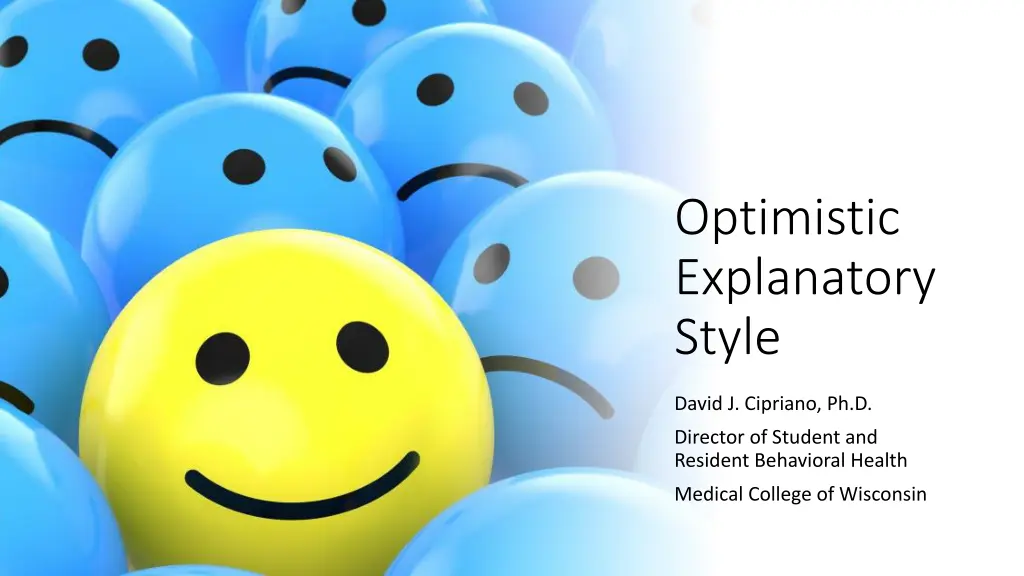
Understanding Optimistic Explanatory Style Benefits and Strategies
Learn about the Optimistic Explanatory Style and how it can help you handle negative feedback effectively, leading to decreased rates of depression, increased problem-solving skills, and more resilient stress management. Discover the key differences in what optimists do, and how to make optimistic attributions for setbacks to foster personal growth and resilience.
Download Presentation

Please find below an Image/Link to download the presentation.
The content on the website is provided AS IS for your information and personal use only. It may not be sold, licensed, or shared on other websites without obtaining consent from the author. If you encounter any issues during the download, it is possible that the publisher has removed the file from their server.
You are allowed to download the files provided on this website for personal or commercial use, subject to the condition that they are used lawfully. All files are the property of their respective owners.
The content on the website is provided AS IS for your information and personal use only. It may not be sold, licensed, or shared on other websites without obtaining consent from the author.
E N D
Presentation Transcript
Optimistic Explanatory Style David J. Cipriano, Ph.D. Director of Student and Resident Behavioral Health Medical College of Wisconsin
How do you handle negative feedback? Do you take it as a permanent mark on your record, one that you ll never be able to live down? Do you assume that this one episode is reflective of your overall incompetence? Do you believe that this is a fixed ability and out of your control?
We refer to this as our Explanatory Style
Benefits of Optimism Decreased rates of depression Increased problem-focused coping More likely to engage in healthy behaviors Increased stress hardiness More likely to have social support Tugade, Shiota & Kirby (2014). Handbook of Positive Emotions. New York, NY: Guilford Press.
What optimists do differently They are more skillful at identifying problems More likely to see a stressor as a challenge vs. a threat Quickly identify what they can control or influence Able to accept what they can not control More likely to approach a problem rather than avoid it More likely to seek out information Tugade, Shiota & Kirby (2014).
The Optimistic explanatory style has to do with how we explain negative events in our lives. As temporary rather than permanent Due to a specific thing we need to work on versus our general deficiency or incompetence As controllable with some effort we can fix this versus that it is out of our control (e.g., our ability or I.Q.)
Make optimistic attributions for set- backs or failures. Temporary vs. permanent I am learning I am learning. . I will get better. I will get better.
Make optimistic attributions for set- backs or failures. Specific vs. Global Don t generalize. This is not reflective of your overall ability to be a good scientist/pharmacist/doctor. This is one specific skill set.
Make optimistic attributions for set- backs or failures. Controllable vs. Uncontrollable What s controllable is your effort. What can you do differently next time?


